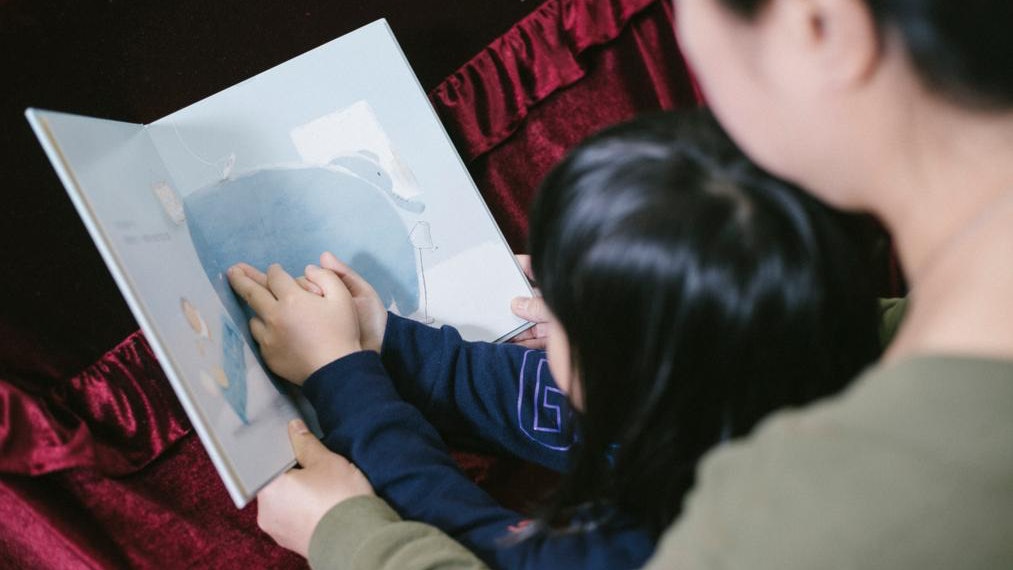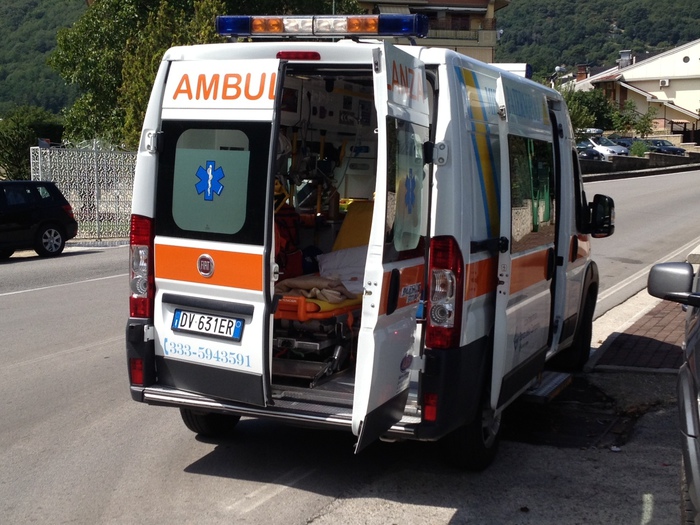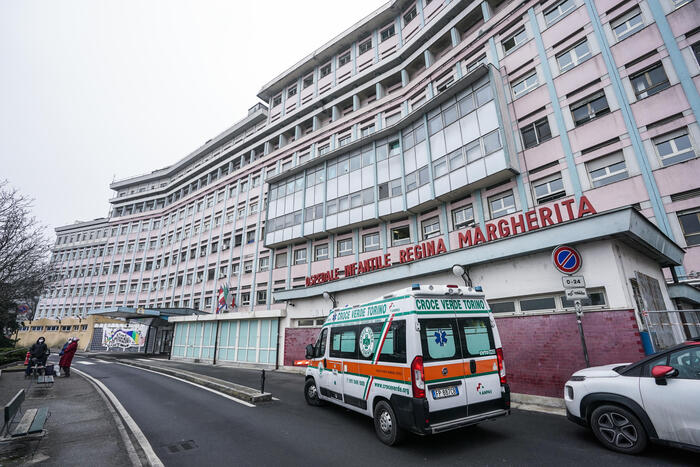Under the fifth wave of the epidemic, schools were closed again, and the grassroots parents of SEN children lacked support and had nowhere to release their psychological pressure.
The Social Association released an investigation report today (23rd), analyzing the parents of SEN children faced with the problem of school suspension and insufficient support services. "She walks around like a madman, tell me it would be fun to jump off the building." She had to be hospitalized for more than ten days, and some single mothers were exhausted to take care of their two SEN children. The brothers and sisters were even more unable to control themselves because of their behavior, and "they had a fight to the point of alerting the police." The three had to meet with a psychiatrist to take medication on a regular basis. Some concern groups pointed out that after the SEN children moved from kindergarten to primary school, there was a gap in their learning and treatment support. With more than 1,000 yuan per lesson, grass-roots families cannot afford it. We urge the government to provide subsidies or increase service resources.
The Social Association released an investigation report today (23rd), analyzing the problems of parents of SEN children facing the suspension of schools and insufficient support services due to the epidemic.
(Photo by Mo Jiawen)
Survey finds gaps in preschool and school-age SEN child support services
From June to September last year, the Hong Kong Association of Community Organizations conducted an online questionnaire survey on children with SEN, and successfully interviewed 311 parents of children diagnosed with SEN to learn about the needs and services of children with SEN, as well as the charges for support services for children with SEN. The data analysis was released today.
Among the respondents, 61.4% of children suffer from attention deficit or hyperactivity disorder, 40.8% suffer from speech impairment, 32.8% have dyslexia, and 24.4% have emotional problems.
Among them, about 71% of the children surveyed were from 6 to 12 years old, 18% from 3 to 5 years old, 59.8% were from low-income families, 37% were from CSSA families, and 44% of the children lived in caged houses, subdivided Houses, rooftop houses, etc. are not suitable for living, and most of the families renting private buildings are suites, which shows that the poor living environment affects the physical and mental growth of SEN children.
The survey found that 87.5% of parents of SEN children most want to get homework tutoring and supplementary classes and other learning support, followed by 74.3% of parents who need services such as language training, concentration training and social training, and 73.3% who need music or painting and other interests Serve.
However, the school provided homework remedial classes before the epidemic, but usually a teacher took care of more than 8 students and could not take care of the special needs of SEN students, so they often could not complete their homework. limited and more difficult to meet their learning needs.
As for the government's special support for SEN children, the SWD is co-ordinated by the SWD to provide "subsidized pre-school rehabilitation services", "learning and training grants for children waiting for subsidized pre-school rehabilitation services" and "go-to-school rehabilitation services". Pre-school Rehabilitation Service”, the relevant services are provided by accredited institutions such as clinical psychologists, social workers, speech therapists and other experts to provide treatment services, with clearly defined service time and number of sessions, which are of substantial help to SEN children. After the age of 6, it will be coordinated by the Education Bureau, and each school will apply for the "Learning Support Grant". The usage is more flexible. Compared with pre-school services, SEN children's participation in treatment and training services in primary and secondary schools has decreased, resulting in a gap between pre-school and school-age SEN support services. In addition, only 25% of public sector primary and secondary schools receive optimized school-based psychological services, that is, sending educational psychologists to schools every year. 30 days, and 20 days for the rest of the schools. They also have to take into account the school crisis management and the SEN child assessment service, which shows that the support services are seriously insufficient.
Non-profit organization treatment services are expensive, and each class is more than a thousand dollars
The survey also found that treatment services in primary and secondary schools are insufficient. 27.3% of the interviewed parents sought services from non-profit organizations other than social associations, but 75.6% of the interviewed parents thought that the fees were too expensive, and 63.2% of the interviewees said they could only afford the monthly cost. Learning, interest and training support for SEN children under $1,000.
The Social Association reviewed the SEN child treatment and training services of 15 non-profit organizations last year. Since most of them adopt a self-financing business model, the fees are extremely expensive. Take the reading and writing training classes for special learning difficulties as an example. About 180 to 990 yuan, the assessment fee ranges from 2,300 to 9,460; speech therapy, occupational therapy, physiotherapy, education and clinical psychology services, the fee for each session ranges from 200 to 1,100, and the maximum assessment fee is as high as 9,000 yuan. It is unaffordable for a grassroots family.
Due to inadequate services, 85.2% of the interviewed parents had insomnia in the last month, 15.4% of them had suicidal thoughts, and 73% of them needed to go to the psychiatric department for follow-up.
Mr. Hong, who lives in a subdivided apartment, has a daughter who is studying in elementary school. She was diagnosed with dyslexia and hyperactivity disorder when she was studying in K3 in June 2019. However, she is just over the age of receiving pre-school service support and has to wait for her promotion to elementary school. She was given appropriate support, but she happened to encounter the epidemic again. The school was closed for a long time and she stayed at home for a long time. His condition gradually worsened. When he was 6 years old the year before, he suddenly ran around at home like a madman. Sleepless all night, claiming that "I saw a lot of worms walking around all night." He was so frightened that he took his daughter to the emergency department for treatment, and was hospitalized for more than ten days for observation. Referral for psychiatric follow-up.
He described that SEN children originally needed to learn more and go out to socialize, but school was suspended for more than two years due to the epidemic, and online classes did not help SEN children. Qu is also worried, seeing many single-parent families who especially need to see Qu.”
Tina, a single mother of three children, two of whom suffer from ADHD, lack of concentration and dyslexia, and she also suffers from depression. The three of them need to see a psychiatrist for medication regularly. She said that she couldn't help but feel sad Wipe away tears.
(Photo by Mo Jiawen)
Single mother and two children diagnosed with hyperactivity and lack of concentration
Tina is a single mother with three children. The eldest son has been involved in social work. The 14-year-old second son suffers from hyperactivity and lack of concentration. The 11-year-old daughter suffers from dyslexia and lack of concentration. When the primary one found a problem, the government doctor waited until the primary three to confirm the diagnosis. Because the illness could not be confirmed in the middle, he was punished by the teacher almost every day. Go back.” After Primary 4, the school referred him to participate in social training in a non-profit organization, two classes a month, but after Primary 6, it was completely closed, so that the son’s condition has not improved. Currently, he is studying in Secondary 2, and he has behavioral problems. She was stopped and checked out by the school. After returning home, she could not calm down at home. The room was almost full of debris, leaving her helpless.
As for the young girl, the third child was diagnosed. Due to lack of concentration, she could not keep up with the progress of her studies at all. She was almost unqualified in general subjects. However, she refused to communicate with herself. The two brothers and sisters often disagreed and fought. The police were repeatedly alerted to the scene in the early hours of the morning. They also suffered from depression due to excessive psychological pressure. At present, the three of them have to go to the psychiatric department for a long-term follow-up consultation and take medicine.
Huang Wenjie, director of the community organization of the Social Association, said that it is necessary for the government to increase the support for caregivers of SEN children, including the proposal to establish a caregiver allowance, so that the current "Trial Scheme on Providing Living Allowance for the Caregivers of Low-income Disabled Persons" to be extended to parents of SEN children; 19 parent or family resource centers have increased staff to benefit more SEN children; strengthened home-school cooperation and optimized the special education information system to follow up on the support of SEN children in school.
In addition, in response to the high cost of non-profit-making services, she suggested that the government provide a certain number of free services, or provide full or half-free quotas, and consider providing 1,200 cash grants or study vouchers to encourage parents to use the services.
The Subdivided Housing Rent Control Ordinance will come into effect tomorrow. The Appraisal Department of Concerned Groups petitions to urge the improvement of law enforcement. Social enterprises hire SEN youths to provide practical training for the elderly to make food and cooking kits. Licensing Matters
01 Community















